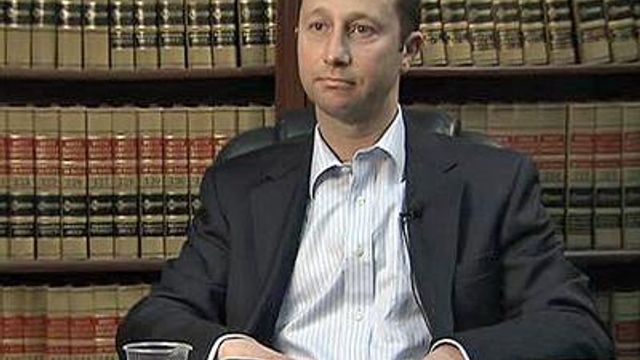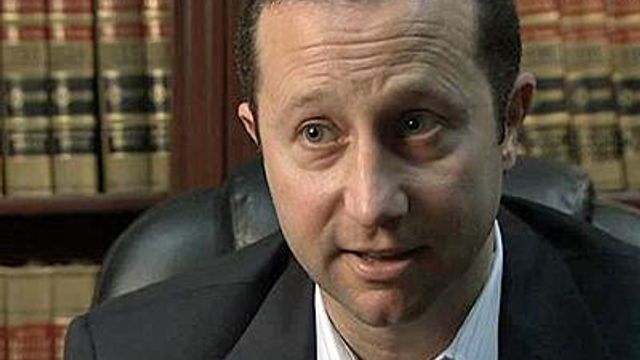Brad Cooper was framed, defense attorney says
A day after Brad Cooper was found guilty of first-degree murder in his wife's July 2008 death, defense attorney Howard Kurtz says he believes his client was framed and that there's a strong chance to win an appeal of the verdict.
Posted — UpdatedCooper, 37, was arrested in October 2008, more than three months after his wife, Nancy Cooper, was found strangled to death 3 miles from their Cary home.
Evidence presented during the eight weeks of testimony was mostly circumstantial, with the exception of a Google Maps search that, defense attorney Howard Kurtz says, was the only piece of evidence that prosecutors had that linked Brad Cooper to the crime.
"Their case was exclusively based on this one map, and the map, in and of itself, bears several different neon signs that point ‘tampering here’ that were very difficult to find, mind you, but once found were very easy to see," he said.
The state argued that three days before Nancy Cooper’s decomposing body was found in an unfinished subdivision, Brad Cooper used his work laptop to search for the same site. Brad Cooper has said his wife went jogging and never returned home.
"There was information planted on the computer. Now, I cannot say by whom, but I can say that the files were placed on the machine," Kurtz said. "I think we can prove beyond any doubt that's what happened."
Kurtz said anyone who came into contact with the computer could have tampered with it.
"That would include all of the police," he said. "That's the first group of people who could do it, but it's not limited to the police by any means, and I'm not saying the Cary Police Department did that."
"Beyond the police, any neighbors that were living in the wireless range could easily have the capability to alter files on the computer," he added.
Jurors were never allowed to see the evidence to prove the tampering, Kurtz said, because Superior Court Judge Paul Gessner ruled that the defense's expert witness wasn't qualified in computer forensics.
A second defense expert wasn't allowed to testify, partly because prosecutors said timing didn't allow for them to prepare for adequate cross-examination.
"There was no other evidence that I heard in that courtroom that was persuasive in any way, shape or form. I think that is the only piece of evidence that (the jury) could have chosen to make a decision based upon," Kurtz said. "To me, it was devastating that we were unable to address it."
Kurt said he does not believe Gessner understood the technology being presented.
"I think when technology becomes so central to a case, as this one, we should actually have judges who are trained and who understand the intricacies of the technology they're going to be making life-altering decisions over," he said.
Cary Police Chief Pat Bazemore couldn't be reached for comment after Kurtz's interview Friday, but in an interview earlier in the day, she defended her detectives' work based on Kurtz's claims during the trial that it was dishonest and inept.
Mistakes were made, Bazemore said, but "we learn from them, and we move on."
"But there's never been a question about our detectives' integrity and their ability to investigate this case," she said.
Cooper, meanwhile, is at Central Prison in Raleigh, where he'll stay as he undergoes a diagnostic and admission process into the state prison system.
"He accepted what he heard in the courtroom," Kurtz said. "I believe he understands that the appellate process is just beginning, and I think we have a tremendously good chance at appeal."
Related Topics
• Credits
Copyright 2024 by Capitol Broadcasting Company. All rights reserved. This material may not be published, broadcast, rewritten or redistributed.






